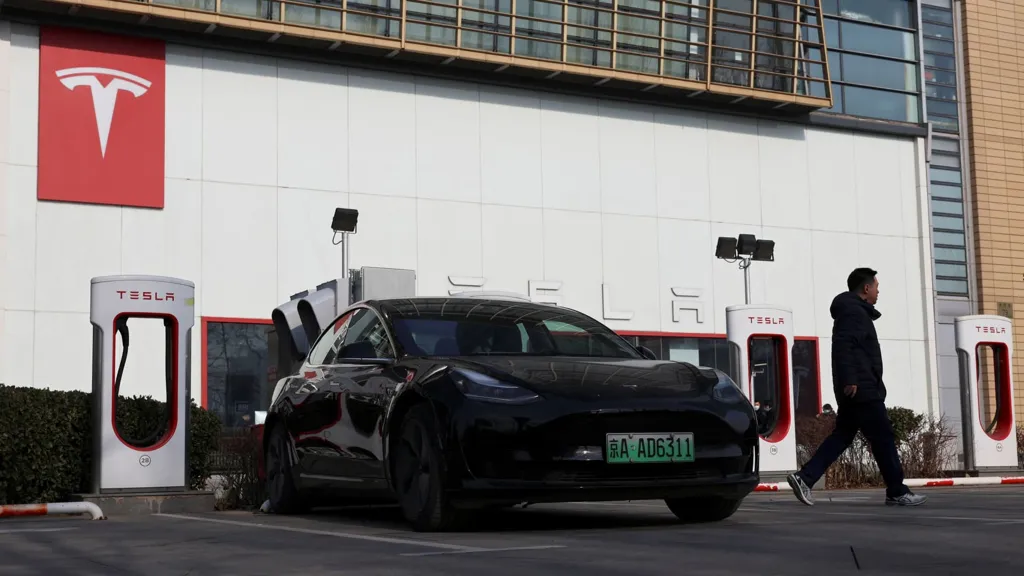If 2024 was the year that traditional foreign automakers were shown the exit on China's car market, 2025 looks to be the year that a few local electric car companies can solidify their leadership.
"In China, [new energy vehicle] leaders such as BYD are likely to consolidate their market position further, while foreign brands fade," Nomura said in a 2025 global autos outlook published Dec. 4.
They pointed out how BYD has already taken 16% of the entire Chinese auto market as of October this year -- up from 12% in 2023. That's according to year-to-date unit sales. The Hong Kong-traded automaker is Nomura's top pick for the China car market. The analysts rate BYD a buy, with a price target of 375 Hong Kong dollars ($48.20), for upside of just over 3% from Friday's close.
BYD's revenue in the third quarter topped that of Tesla for the first time on a quarterly basis. The Chinese automaker in 2023 produced more cars than Elon Musk's automaker for a second-straight year. Tesla still made more battery-only cars than BYD, whose hybrid vehicles account for at least half of sales. But the U.S. electric car company sells in a far higher price range than most of BYD's models.
Tesla's China sales fell by 4.3% in November from a year ago, while BYD saw a 67% surge, according to CNBC calculations of China Passenger Car Association Data.
BYD is so far ahead of its competitors that the second-largest player by China market share, Geely, only has 8%, according to Nomura.
"We believe that the company is on track to exceed its full-year target of 2m units, with EV penetration likely to reach 40%, supported by the strong performance of newly launched models," HSBC analysts said.
They expect Geely will grow sales by 22% next year to 2.6 million units. Geely owns U.S.-listed electric car company Zeekr and other auto brands, including Swedish brand Volvo, which the Chinese company acquired from Ford in 2010.
Other traditional automakers, domestic and foreign, have struggled in China as the world's largest auto market has swiftly shifted to battery-only and hybrid-powered cars.
General Motors announced it expects to incur billions of dollars in costs as it restructures its joint venture with SAIC Motor Corp. in China; changes include plans to close plants.
Citi analysts said that according to conversations with Yongda management on Dec. 4: "cars running Huawei's automobile system can reach one million unit sales next year."
The firm has a price target on Yongda nearly up by nearly47 %from Friday’s close .
